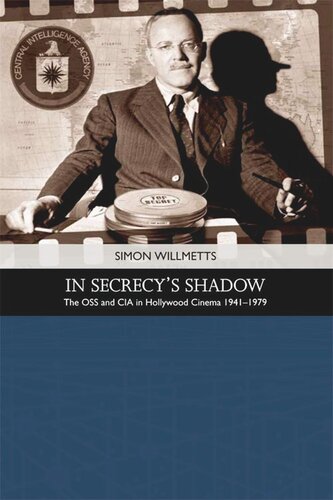

Most ebook files are in PDF format, so you can easily read them using various software such as Foxit Reader or directly on the Google Chrome browser.
Some ebook files are released by publishers in other formats such as .awz, .mobi, .epub, .fb2, etc. You may need to install specific software to read these formats on mobile/PC, such as Calibre.
Please read the tutorial at this link: https://ebookbell.com/faq
We offer FREE conversion to the popular formats you request; however, this may take some time. Therefore, right after payment, please email us, and we will try to provide the service as quickly as possible.
For some exceptional file formats or broken links (if any), please refrain from opening any disputes. Instead, email us first, and we will try to assist within a maximum of 6 hours.
EbookBell Team

5.0
40 reviewsDuring the Second World War hundreds of Hollywood filmmakers under the command of the legendary director John Ford enlisted in the OSS to produce training, reconnaissance and propaganda films. This wartime bond continued into the post-war period, when a number of studios produced films advocating the creation of a permanent peacetime successor to the OSS: what became the Central Intelligence Agency. By the 1960s however, Hollywood's increasingly irreverent attitude towards the CIA reflected a growing public anxiety about excessive US government secrecy.
In Secrecy's Shadow provides the first comprehensive history of the birth and development of Hollywood's relationship with American intelligence. It takes an interdisciplinary approach, synthesizing literatures and methodologies from diplomatic history, film studies and cultural theory, and it presents new perspectives on a number of major filmmakers including Darryl F. Zanuck, Alfred Hitchcock and John Ford.
Based on research conducted in over 20 archival repositories across the United States and UK, In Secrecy's Shadow explores the revolution in the relationship between Hollywood and the secret state, from unwavering trust and cooperation to extreme scepticism and paranoia, and demonstrates the debilitating effects of secrecy upon public trust in government and the stability of national memory.